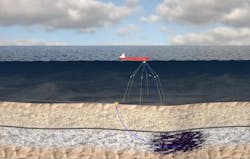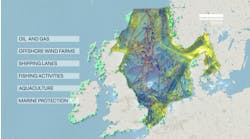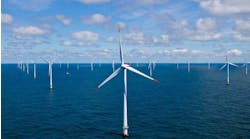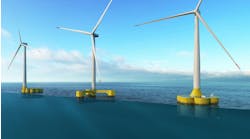Offshore staff
SANDNES, Norway – Horisont Energi and Equinor have agreed to further progress a proposed carbon transportation and storage project offshore northern Norway.
The Polaris project is targeting total carbon storage capacity of more than 100 MM tons, around twice Norway’s annual greenhouse gas emissions.
It is also a key component of the planned Barents Blue project, which could be Europe’s first world-scale carbon-neutral ammonia production plant.
Under the first-phase development, the facility would convert natural gas from the Barents South region to carbon-neutral blue ammonia, said to be an easily transportable hydrogen carrier, for conversion back to hydrogen on arrival at the destination or for direct used in various applications.
Currently the project is about to enter the concept phase, with investment decisions for Polaris and Barents Blue project expected toward the end of 2022.
At the Sleipner and Snøhvit fields in respectively the North Sea and Barents Sea, Equinor has to date captured and stored 26 MM tons of CO2. The company is also a partner in the Northern Lights CO2 transport and storage project, which includes the Aurora CO2 storage offshore western Norway.
Last December, Horisont Energi and Equinor entered a memorandum of understanding for joint feasibility studies for Barents Blue. The plant could have capacity to produce more than 1 MM tons/yr of blue ammonia per year once operational in 2025, with a CO2 capture rate above 99%.
In the first phase of the project, Polaris would store 2 MM tons/yr of CO2 from the Barents Blue-produced ammonia.
05/20/2021



